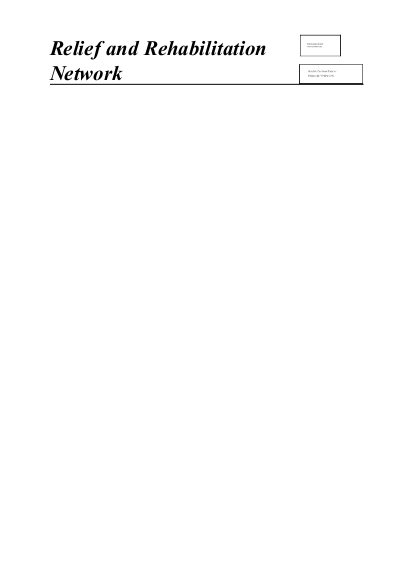The Role of Formal and Informal Research Methods in Relief Operations

The aim of this paper is to examine the usefulness of formal, quantitative data
collection techniques for relief operations, using a survey from northern Iraq as a
case study. By `formal' we mean household questionnaire surveys using statistically
representative sampling techniques. In contrast, informal methods are those which
use non-random sampling and less structured interviews (or no interviews at all)
to gather information on the subject of interest. Rapid Rural Appraisal (RRA)
methods epitomise these informal approaches. In recent years these methods have
become increasingly popular and are now widely used by academics and
development workers alike. In many circles, formal methodologies have become
unfashionable and the subject of much criticism. Questionnaire surveys, it is often
argued, are expensive, inflexible and take far too long to process. Moreover, some
have argued that they produce misleading results: subsequent cross-checking may
reveal major errors in findings1. It is argued in this paper that formal survey
techniques do not necessarily have these shortcomings. Furthermore, when
quantitative estimates of the parameters of distributions are required, there is no
substitute for a formal sample survey.
